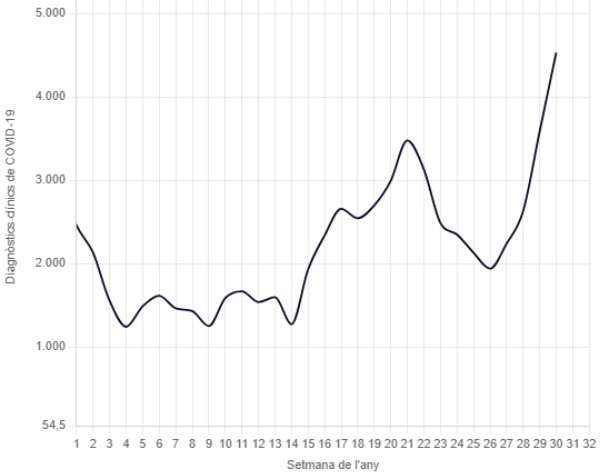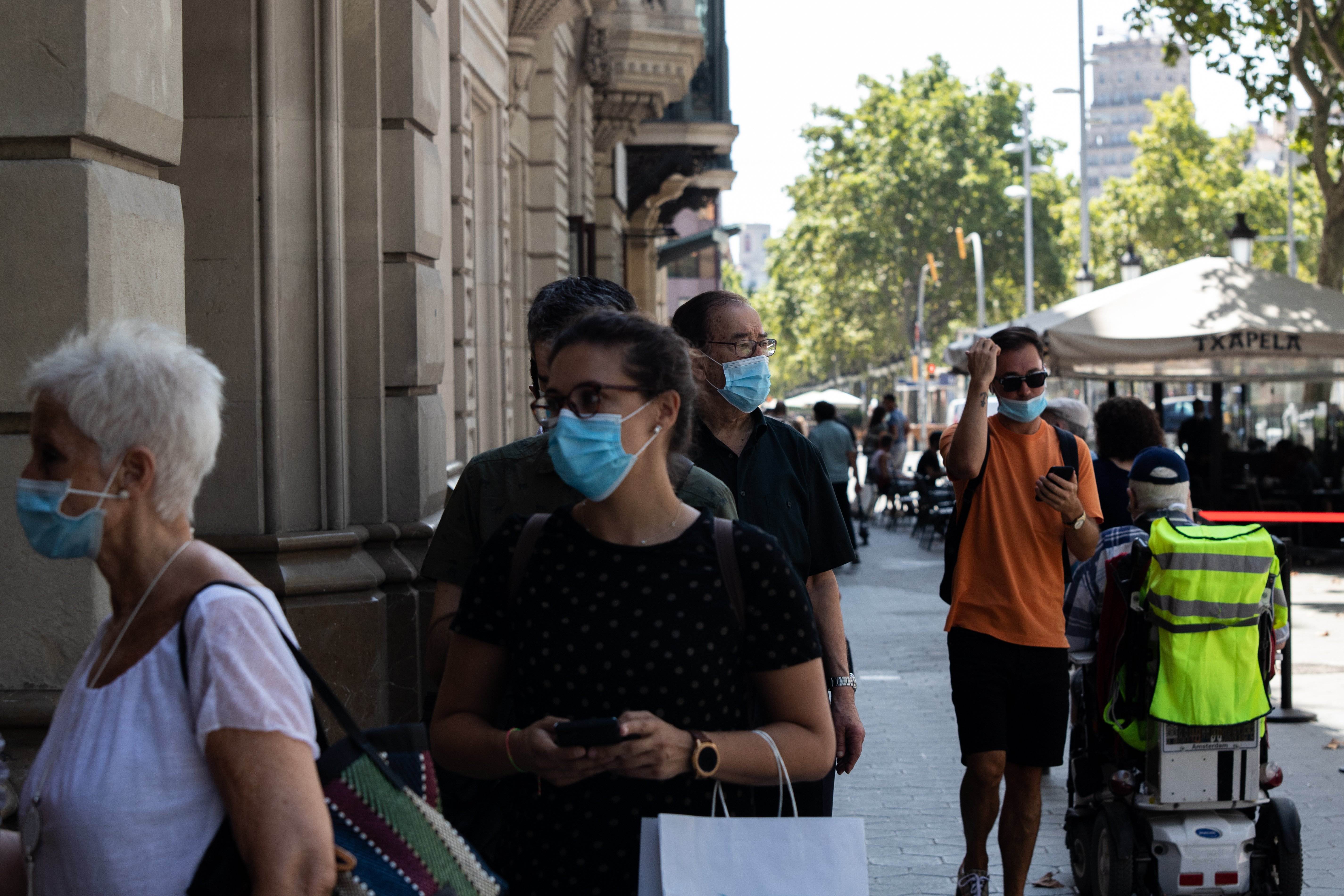Doctors in Barcelona have explained why Covid-19 figures in Catalonia are soaring upwards again and have called for caution, after 4,531 new cases were reported for the week of July 24th to 30th - thus becoming the highest weekly figure for 2023, showing an upward trend in the middle of summer. The reason for the increase is quite simple: although we spend more time outdoors - a factor which reduces propagation of the virus - that is offset because at this time of the year "there is more mobility". This was explained this Thursday on Catalan TV channel 3/24 by the vice-president of the Barcelona Medical Association, Jaume Sellarès, who recalled that mobility "favours contagion".
The increase in new Covid-19 cases at this time of year is "normal", and in fact "in other years it also happened that in August there was a small increase in cases". Of course, if cases increase, "the hospital admissions increase". "But we have figures that are below those of last year. There is no worrying increase", explained Sellarès. In fact, he asserted that this "small increase does not represent any problem" in the primary care (CAP) centres - where they have the necessary mechanisms to act, even though a significant part of the staff are on holiday.

The statistics for new Covid-19 cases in Catalonia for week 30 of 2023 (July 24th to 30th), then, show a rapid increase, but the latest total of 4,531 is well below the equivalent figures for the same week in previous years: in week 30 last year, there were 9,645 new cases reported in Catalonia; in 2021, there were 32,219 cases; and in 2020, there were 17,690. All of the new cases diagnosed in Catalonia in the last week are of the Ómicron variant, with 86% of these being the XBB.1 subvariant.
Pharmacies and antigen tests
Thus, the vice-president of the Barcelona Medical Association called for caution and recalled that "common sense is very useful". With this phrase he also referred to the need to be alert, both those in risk groups, and in general: "if a person has a fever, they should stay home". "As we would do in other situations such as a cold or the flu," he added. In mild cases, treatment of symptoms, rest and hydration will be "enough". As for masks, their use will be necessary in areas of special caution such as care homes. "When in doubt, consult your doctor," he concluded.
In this regard, some pharmacies have told the ACN news agency that they have noticed increased sales of antigen tests in the last two or three weeks, as well as the visits of customers who have a cough or other symptoms compatible with Covid-19. In fact, now that it is no longer mandatory to wear a mask, some pharmacy workers admit that they have chosen to mask up once again to serve customers, and it has been observed that some customers are also covering their faces again if they have symptoms. Faced with the increase in cases and the sales of tests, say the pharmacists consulted, they prefer not to expose themselves to the risk of possible contagion. These pharmacy professionals comment that the profile of those buying the tests is varied and that they usually do not end up notifying whether they have subsequently tested positive or negative.

